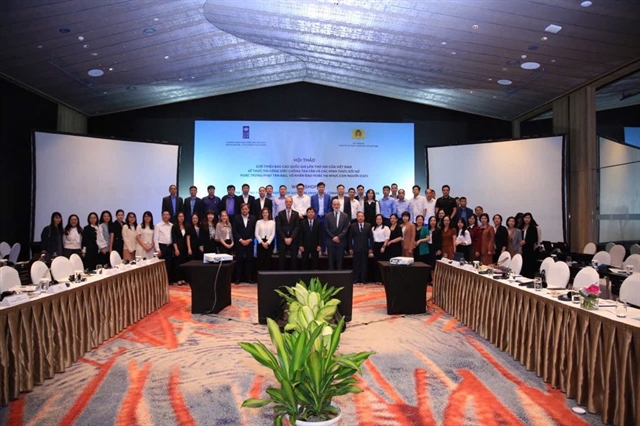 Society
Society

.jpg) |
| Participants at the plenary session of the United Nations General Assembly’s Sixth Committee. — VNA/VNS Photo |
NEW YORK — The United Nations General Assembly’s Sixth Committee has adopted by consensus a resolution negotiated under Việt Nam's chairmanship on the Model Law on Automated Contracting (Model Law) drafted by the UN Commission on International Trade Law (UNCITRAL).
Việt Nam's successful coordination in drafting the resolution reflects the timeliness of the resolution and the widespread support of countries for the law. This also demonstrates the Southeast Asian nation's proactive and substantive contributions as a member of UNCITRAL in the 2019 – 2025 term to the UN's collective efforts in developing, harmonising, and implementing international trade laws, and contributes to the country’s success in its reelection to the UNCITRAL for the 2025–2031 term held on November 20 with a vote count of 175 out of the 183.
Drafted since 2022 and finalised in July 2024, the law provides a legal framework to enable the use of automation in international contracts, including through the application of artificial intelligence techniques and “smart contracts”, as well as in machine-to-machine transactions. It is intended to complement and supplement existing laws on electronic transactions, in particular those based on other UNCITRAL electronic commerce texts which have been enacted in over 100 jurisdictions worldwide. The law is the first legislative text to result from exploratory work conducted by UNCITRAL on legal issues related to the digital economy and digital trade.
The resolution and the law will be submitted to the Assembly for review and adoption in December. Once approved, the law, along with its legislative guide, will be published and widely disseminated by the UN Secretary-General as stipulated in the resolution, creating a foundation for countries to refer to and incorporate its provisions in the process of enacting or amending domestic laws on e-commerce.
Meanwhile, the resolution also calls on UN bodies, international and regional organisations to continue collaborating with UNCITRAL in legal activities aimed at promoting consistency in the development and harmonisation of national laws in the field of e-commerce.
Alongside various model laws previously developed by UNCITRAL, such as the Model Law on Electronic Commerce, the Model Law on Electronic Signatures and the Model Law on Electronic Transferable Records, the Model Law on Automated Contracting represents a new UN initiative to assist countries in perfecting their legal systems to regulate new commercial transaction methods, effectively addressing new legal challenges while maximising opportunities brought by the application of automation and artificial intelligence in commerce, contributing to the establishment of a fair and transparent legal framework for e-commerce.
UNCITRAL is the core legal body of the UN system in the field of international trade law. Its mandate is to remove legal obstacles to international trade by progressively modernising and harmonising trade law. It also provides technical assistance to law reform activities, including assisting member states to review and assess their law reform needs and to draft the legislation required to implement UNCITRAL texts. — VNS




